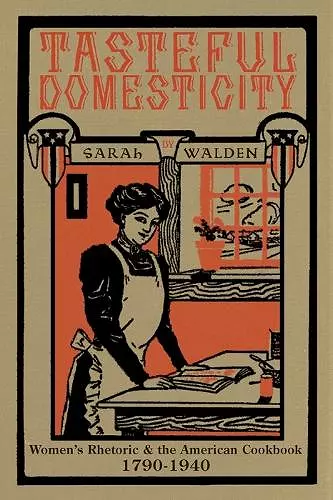Tasteful Domesticity
Women's Rhetoric and the American Cookbook, 1790-1940
Format:Paperback
Publisher:University of Pittsburgh Press
Published:31st Mar '18
Currently unavailable, our supplier has not provided us a restock date

Tasteful Domesticity demonstrates how women marginalized by gender, race, ethnicity, and class used the cookbook as a rhetorical space in which to conduct public discussions of taste and domesticity. Taste discourse engages cultural values as well as physical constraints, and thus serves as a bridge between the contested space of the self and the body, particularly for women in the nineteenth century. Cookbooks represent important contact zones of social philosophies, cultural beliefs, and rhetorical traditions, and through their rhetoric, we witness women's roles as republican mothers, sentimental evangelists, wartime fundraisers, home economists, and social reformers. Beginning in the early republic and tracing the cookbook through the publishing boom of the nineteenth century, the Civil War and Reconstruction, the Progressive era, and rising racial tensions of the early twentieth century, Sarah W. Walden examines the role of taste as an evolving rhetorical strategy that allowed diverse women to engage in public discourse through published domestic texts.
Walden advances the scholarship on cookbooks and housekeeping advice manuals by examining them through the lens of ‘taste’ and rhetorical theory. She demonstrates how such texts functioned in contradictory and complex ways, revealing in new ways the truly intersectional nature of domestic ideology—how prescriptive norms around home, gender, race, class, nation, and ethnicity work together and through each other."" - Jessamyn Neuhaus, SUNY Plattsburgh
""Tasteful Domesticity delivers on its promise to model how we can and should read cookbooks for political, philosophical, national, gendered, and racial rhetorics worked out in their pages. By untangling subtle differences in the word ‘taste’ and in authors’ access to it, Walden changes both food studies in the humanities and nineteenth century women’s history."" - Elizabeth Engelhardt, University of North Carolina, Chapel Hill
ISBN: 9780822965138
Dimensions: unknown
Weight: unknown
232 pages